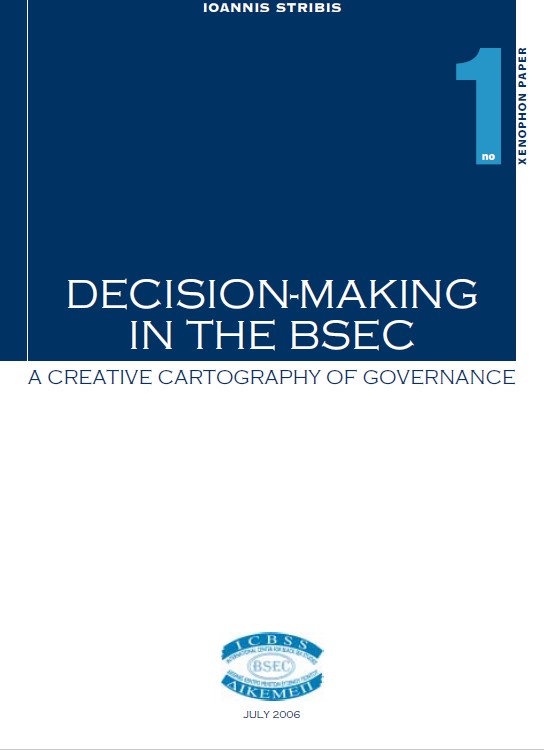 Title: Decision-Making in the BSEC. A creative cartography of Governance
Title: Decision-Making in the BSEC. A creative cartography of GovernanceSeries: Xenophon Paper Series
Published by: ICBSS
Release Date: July 2006
Pages: 51
Author: Ioannis Stribis
Preface by: Dimitrios Triantaphyllou
The Organisation of the Black Sea Economic Cooperation (BSEC) finds itself in the midst of reforming its institutional framework. The reasons for reform are many: They range from the periodic need to recalibrate existing mechanisms to the necessity of adapting to changes in the international environment which impact on the BSEC’s role and position in the wider Black Sea region and beyond. The heteroclite membership of the BSEC with its varying perspectives and approaches to regional cooperation makes this exercise all the more challenging and pressing. How much consensus exists among the member states for substantive reform of the Organisation? Is the BSEC able to reform in order to become a more effective organisation? What will be the consequences if the reform process stalls or falls short of expectations?
The aforementioned questions are relevant at a time when the wider Black Sea region acquires greater prominence for the European Union which is currently debating its future policy towards the region. The same applies to the United States whose geopolitical considerations imply the search for partners in the region. Other regional ‘heavyweights’ such as the Russian Federation and Turkey attempt to balance the need for reform of the BSEC in the interest of furthering regional cooperation with a careful assessment of future interaction with external actors. Yet again countries like Greece and Romania aim to balance their EU commitments with their BSEC obligations. In addition, cross-cutting horizontal concerns such as energy, transport, the environment, and combating organised crime among others need to be factored in and carefully assessed both from a national and regional point of view.
The edition is available here.
